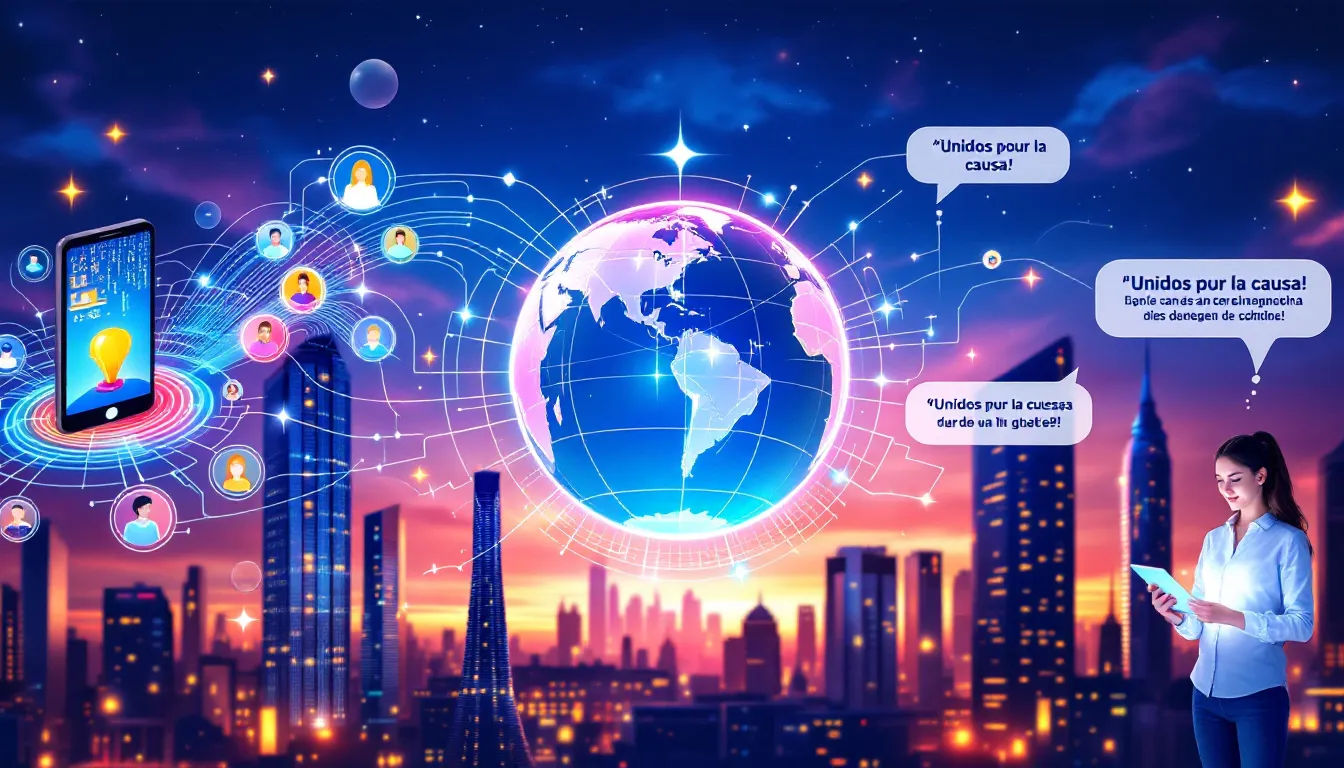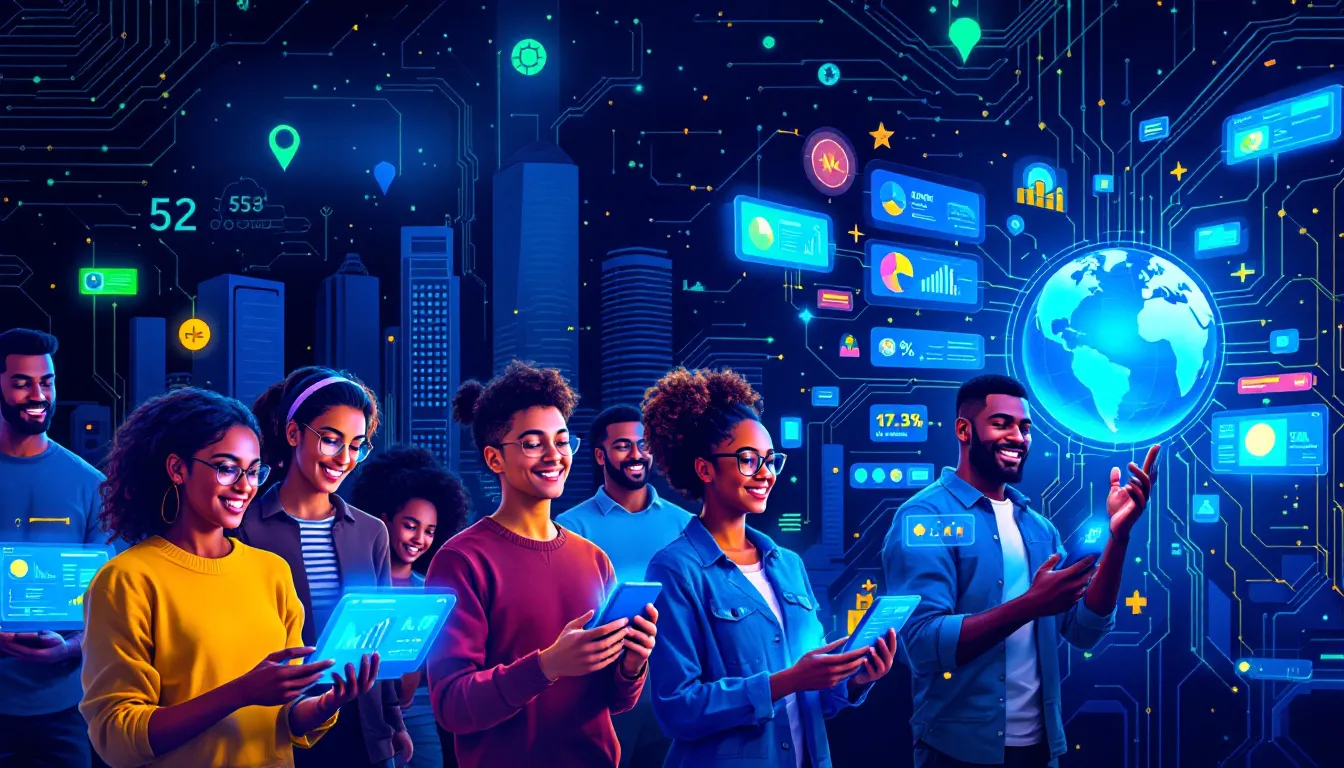ChatGPT for Nonprofits: Best Practices and Real-World Examples
Nonprofits need efficient solutions to maximize their impact. ChatGPT for nonprofits can help streamline operations, enhance donor engagement, and boost fundraising. This article explores using ChatGPT for nonprofits, its benefits, and real-world examples.
Key Takeaways
ChatGPT enhances nonprofit operations by automating tasks, improving efficiency, and allowing staff to focus on strategic initiatives.
The AI-powered tool supports fundraising by generating personalized donor appeals, creative campaign ideas, and effective communication strategies.
Ethical considerations, such as privacy and content accuracy, are vital when using ChatGPT, necessitating human oversight to ensure effective and respectful engagement.
Understanding ChatGPT and Its Benefits for Nonprofits
Nonprofits are leveraging technology to boost their operations, with ChatGPT emerging as a powerful tool in this domain. ChatGPT is an AI language model developed by OpenAI, capable of generating human-like text based on various prompts. It has proven to be a game-changer, with 58% of nonprofits already utilizing AI in their operations. The ease with which ChatGPT can be integrated into daily tasks makes it an invaluable asset for nonprofit organizations, allowing them to maximize their impact even with limited resources.
Involving key stakeholders in the development of mission and vision statements and communications plans is crucial for enhancing creativity and alignment within the organization.
The benefits of using ChatGPT for nonprofits are numerous. For instance, it can resolve tasks in minutes instead of weeks, significantly enhancing operational efficiency. With 82% of nonprofit professionals expressing comfort in using AI for donor outreach, the potential for improving donor engagement and job satisfaction is immense.
ChatGPT helps overcome challenges such as limited resources, enabling nonprofits to focus more on their core missions and less on mundane administrative tasks.
What is ChatGPT?
ChatGPT, short for Chat Generative Pre-Trained Transformer, is an AI language model designed to generate human-like text by predicting responses based on its extensive training data. Developed by OpenAI, it is capable of handling a variety of tasks, including answering queries, summarizing texts, and creating original content. This makes it a versatile tool for nonprofits, helping them respond to donor inquiries, draft communications, and even create marketing materials.
Understanding the context of the prompts provided allows ChatGPT to generate relevant and coherent responses.
Key Benefits for Nonprofits
For nonprofit organizations, the advantages of utilizing ChatGPT are substantial. The AI tool can streamline operations by automating routine tasks, thus freeing up staff to focus on more strategic responsibilities. Enhancing operational efficiency with ChatGPT enables nonprofits to manage limited resources more effectively.
Additionally, 69% of nonprofit professionals believe that job satisfaction would improve with the use of AI, as it reduces the burden of manual tasks. This not only boosts morale but also allows nonprofits to maximize their impact and better serve their communities.
Transforming Fundraising Efforts with ChatGPT
Fundraising is the lifeblood of nonprofit organizations, and ChatGPT has the potential to revolutionize how these efforts are conducted. ChatGPT can support fundraising strategies by providing creative ideas, personalizing donor appeals, and drafting thank-you notes. With its ability to tailor communications to resonate more effectively with donors, ChatGPT can enhance donor engagement and retention, leading to increased donations and more successful fundraising campaigns.
Incorporating ChatGPT into your fundraising efforts can streamline various aspects of the process. From generating innovative campaign ideas to crafting personalized donor messages, ChatGPT can handle it all. This not only makes the fundraising process more efficient but also allows nonprofits to focus on building meaningful relationships with their donors.
Automating routine tasks with ChatGPT allows nonprofit staff to focus on strategic initiatives and long-term planning.
Generating Fundraising Campaign Ideas
ChatGPT acts as a brainstorming partner for nonprofits, generating creative and innovative ideas for fundraising campaigns. Whether it’s proposing unique fundraising challenges or event themes, ChatGPT can cater to the nonprofit’s goals and audience.
Using ChatGPT prompts enables nonprofits to craft targeted messaging for their campaigns, which can boost donations and donor engagement.
Personalized Donor Appeals
Personalized donor appeals are crucial for effective fundraising, and ChatGPT excels in this area. The AI can develop customized fundraising messages that resonate deeply with major donors and potential supporters. By using donor-centered language and segmenting outreach, nonprofits can enhance donor engagement and retention.
Providing detailed instructions when crafting ChatGPT prompts ensures the generated content is relevant and engaging, making donors feel valued and understood.
Writing Thank You Notes
Expressing gratitude to donors is an essential part of fundraising, and ChatGPT can streamline this process by drafting thank-you letters, emails, and phone scripts. Incorporating specific donor contribution details allows ChatGPT to craft sincere and high-quality thank-you messages.
A well-structured thank you note should include gratitude, the impact of the support, and an invitation for further engagement, effectively maintaining donor interest and fostering long-term relationships.
Enhancing Donor Engagement and Communication
Effective communication is key to donor engagement, and ChatGPT can significantly enhance this aspect for nonprofits. By automating routine donor communications, ChatGPT helps maintain regular contact with supporters, providing updates on project progress and sending personalized thank-you messages. This not only deepens donor relationships but also ensures that donors feel valued and connected to the organization.
Moreover, ChatGPT can provide real-time support to donors through AI-powered chatbots, addressing inquiries and offering personalized responses based on donor interests and preferences. This level of engagement can lead to better donor retention rates and more meaningful connections with supporters.
Additionally, ChatGPT can assist in creating engaging social media posts that align with current trends, helping nonprofits maximize their impact on social media platforms.
Automating Donor Communication
ChatGPT can automate routine donor communications, such as sending updates on project progress, milestones, and personalized thank-you notes. By using specific donor data, ChatGPT creates more impactful messaging that resonates deeply with individual supporters.
This automation allows nonprofit staff to focus on more strategic tasks while ensuring that donor management is streamlined and that donors receive timely and relevant communications.
Real-Time Support for Donors
Real-time support is crucial for maintaining donor engagement, and ChatGPT-powered chatbots can provide 24/7 assistance. These chatbots can address donor inquiries about the organization’s mission, programs, and impact, offering personalized responses based on donor data.
Providing immediate assistance and information with ChatGPT improves donor satisfaction and fosters stronger connections.
Creating Engaging Social Media Posts
ChatGPT can help nonprofits create engaging social media posts that capture donor interest and align with current trends. Generating creative ideas and content with ChatGPT helps nonprofits maintain an active and engaging presence on social media.
Utilizing inclusive prompts and additional filters can help mitigate the risk of generating content that may alienate specific groups, ensuring that all communications are respectful and inclusive.
Streamlining Internal Operations
Nonprofits often face the challenge of limited resources, making it essential to streamline internal operations. ChatGPT can significantly reduce the time required to complete various tasks, transforming them from weeks into mere minutes. By automating routine tasks, ChatGPT allows nonprofit staff to concentrate on more strategic responsibilities, enhancing overall efficiency and productivity.
For instance, some nonprofits have successfully used ChatGPT to automate volunteer scheduling and communication, improving volunteer engagement. Leveraging AI tools like ChatGPT allows nonprofits to optimize daily operations and use their resources effectively.
Volunteer Recruitment and Management
ChatGPT can assist nonprofits in volunteer recruitment and management by developing effective messaging and creating volunteer applications. Reducing the administrative burden on volunteer coordination staff with ChatGPT enables nonprofits to focus on building meaningful relationships with volunteers.
This automation enhances overall engagement and ensures that volunteers feel valued and connected to the organization.
Data Analysis for Better Decision Making
Data analysis is crucial for making informed decisions, and ChatGPT excels in this area. Analyzing large data sets quickly with ChatGPT provides nonprofits with valuable insights into fundraising data, program statistics, and survey responses. These insights help nonprofits refine their strategies, enhance donor engagement, and optimize their outreach efforts.
For example, The Trevor Project has successfully used ChatGPT to analyze fundraising data and improve their communication strategies.
Content Creation and Marketing
Content creation and marketing are vital for nonprofits to effectively communicate their mission and engage with their audience. ChatGPT can generate various types of written content, including blog posts, newsletters, and web pages, making it a versatile tool for nonprofits. Assisting in brainstorming ideas and generating an editorial content calendar with ChatGPT helps nonprofits maintain a consistent and engaging online presence.
It's crucial to create content that reflects the nonprofit's tone and branding, ensuring alignment with the organization's unique voice and mission.
Moreover, ChatGPT can create marketing emails by developing content for entire emails or suggesting effective subject lines. This capability ensures that nonprofits can produce high-quality content efficiently, allowing them to focus on other strategic initiatives.
Additionally, ChatGPT can create images for nonprofit purposes, providing a viable alternative to using stock photos. By leveraging these capabilities, nonprofits can enhance their content creation and marketing efforts, ultimately driving greater engagement and support from their audience.
Drafting Long Form Content
ChatGPT excels at drafting long-form content, which is essential for maintaining regular contact with supporters and providing in-depth information about the organization’s work. Streamlining the creation of fundraising campaign materials with ChatGPT helps nonprofits produce organized and effective outreach efforts.
This efficiency allows nonprofits to generate tailored content that engages donors and audiences effectively, ensuring that their messages resonate and inspire action.
Generating Subject Lines
Crafting compelling subject lines is crucial for increasing email open rates and ensuring effective communication on social media platforms. ChatGPT can generate multiple subject line options in seconds, allowing nonprofits to choose the most engaging ones. Generating personalized subject lines that resonate with the target audience can boost email open rates and improve overall outreach effectiveness.
This capability ensures that nonprofits can deliver the right message to their audience, enhancing their communication efforts.
Developing Mission and Vision Statements
Developing clear and impactful mission and vision statements is essential for nonprofits to articulate their goals and values. ChatGPT can provide samples and creative input based on the organization’s details, helping nonprofits craft meaningful statements.
Providing prompts allows ChatGPT to support nonprofits in distilling their core values and articulating future aspirations. This ensures that nonprofits can effectively engage stakeholders with clear and resonant mission and vision statements, ultimately enhancing their overall impact.
Nonprofit Strategy and Governance
Strategic Planning with ChatGPT
Strategic planning is crucial for nonprofit organizations to achieve their mission and goals effectively. ChatGPT can be a valuable tool in this process, offering a range of capabilities to support strategic planning efforts.
Idea Generation: ChatGPT can act as a brainstorming partner, helping nonprofits generate innovative ideas for new programs, services, or initiatives. By providing prompts related to the nonprofit’s mission, ChatGPT can suggest creative solutions that align with the organization’s goals.
Scenario Planning: Anticipating future challenges and opportunities is essential for effective strategic planning. ChatGPT can assist in developing various scenarios, allowing nonprofits to explore different possibilities and prepare for potential outcomes. This proactive approach can help organizations stay resilient and adaptable.
Strategy Development: Crafting strategies to achieve specific goals, such as increasing donor engagement or improving fundraising efforts, can be streamlined with ChatGPT. The AI tool can provide insights and suggestions based on data analysis, helping nonprofits develop targeted and effective strategies.
SWOT Analysis: Conducting a SWOT analysis (strengths, weaknesses, opportunities, and threats) is a fundamental part of strategic planning. ChatGPT can assist in identifying these elements, providing a comprehensive overview that helps nonprofits pinpoint areas for improvement and growth.
By leveraging ChatGPT’s capabilities, nonprofit organizations can enhance their strategic planning processes, ensuring they are well-equipped to achieve their mission and goals.
Governance Support and Decision Making
Effective governance is essential for the success of nonprofit organizations. ChatGPT can support various aspects of governance and decision-making, making these processes more efficient and informed.
Board Meeting Preparation: Preparing for board meetings can be time-consuming. ChatGPT can help generate agendas, minutes, and other supporting materials, ensuring that meetings are well-organized and productive. This allows board members to focus on strategic discussions and decision-making.
Policy Development: Developing policies and procedures that align with the nonprofit’s mission and goals is crucial. ChatGPT can assist in drafting these documents, providing templates and suggestions based on best practices. This ensures that policies are comprehensive and effective.
Decision-Making Support: Informed decision-making is vital for nonprofit leaders and boards. ChatGPT can provide data analysis and insights, helping leaders make evidence-based decisions. By analyzing donor data, fundraising trends, and other relevant information, ChatGPT can support strategic decision-making.
Compliance and Risk Management: Ensuring compliance with relevant laws and regulations is essential for nonprofit organizations. ChatGPT can help identify potential risks and suggest mitigation strategies, ensuring that nonprofits remain compliant and minimize potential liabilities.
By integrating ChatGPT into their governance processes, nonprofits can enhance their decision-making capabilities, ensuring they are well-positioned to achieve their mission and goals.
Nonprofit Grant Funding and Research
Identifying Grant Opportunities
Securing grant funding is a critical aspect of nonprofit sustainability. ChatGPT can assist nonprofits in identifying and securing grant opportunities, streamlining the grant research and application process.
Grant Database Search: ChatGPT can search grant databases to identify potential funding opportunities that align with the nonprofit’s mission and goals. By providing specific criteria, nonprofits can receive tailored recommendations for grants that are a good fit.
Grant Writing Support: Writing compelling grant proposals is essential for securing funding. ChatGPT can assist in developing grant proposals, providing research and writing support. By generating drafts and offering suggestions, ChatGPT can help nonprofits create strong and persuasive applications.
Funder Research: Understanding the priorities and funding criteria of potential funders is crucial for successful grant applications. ChatGPT can research potential funders, providing insights into their interests and past funding decisions. This information can help nonprofits tailor their proposals to better align with funder priorities.
Grant Tracking and Management: Managing grant applications, deadlines, and reporting requirements can be challenging. ChatGPT can help nonprofits track and manage these tasks, ensuring that they stay organized and meet all necessary deadlines. This allows nonprofits to focus on their mission while efficiently managing their grant funding efforts.
By leveraging ChatGPT’s capabilities, nonprofits can streamline their grant research and application processes, increasing their chances of securing funding and achieving their mission and goals.
Addressing Limitations and Ethical Considerations
While ChatGPT offers numerous benefits, it’s crucial to address its limitations and ethical considerations. One of the primary concerns is that ChatGPT is not a replacement for human engagement within nonprofits, as it lacks the ability for genuine emotional connection and nuanced understanding. Implementing human oversight ensures the accuracy and appropriateness of the content generated by ChatGPT.
Furthermore, privacy concerns must be taken into account when using ChatGPT. Users should avoid uploading sensitive personal or financial details to ensure privacy and security. Following best practices and maintaining ongoing oversight allows nonprofits to leverage ChatGPT’s capabilities effectively and ethically.
Ensuring Accuracy and Relevance
Ensuring the accuracy and relevance of AI-generated content is crucial for maintaining effective communication. Nonprofits need to continually refine AI-generated content to align with their specific objectives and audience. Monitoring AI outputs for accuracy is essential, as ChatGPT may not always capture nuanced contextual information.
Therefore, having human oversight for the content generated by ChatGPT helps ensure its quality and relevance in human language, maximizing its impact.
Privacy Concerns
Privacy concerns are a significant consideration when using ChatGPT. It is essential to avoid uploading sensitive information when interacting with the AI to ensure privacy and security. Users should specifically avoid entering sensitive personal or financial details and can opt out of sharing information entered in ChatGPT by changing their settings or submitting an opt-out form.
Following these best practices allows nonprofits to address privacy concerns effectively while benefiting from ChatGPT’s capabilities.
Avoiding Offensive Content
To avoid generating offensive content, ChatGPT has built-in guardrails and additional safeguards in the prompt generation system to promote inclusive outputs. Users can further ensure that ChatGPT outputs are inclusive and respectful by writing their own prompts and building group-specific safeguards.
Ongoing oversight is crucial to ensure that the content remains inclusive and respectful to all audiences, enhancing communication with diverse groups.
Real-World Examples of ChatGPT in Action
Real-world examples of ChatGPT in action provide valuable insights into how nonprofits can effectively leverage this AI tool. Good360, for instance, uses AI-powered chatbots to engage with website visitors, providing real-time support and improving donor interaction. Nonprofits are increasingly adopting AI solutions like ChatGPT to enhance their operational efficiency and donor engagement.
These case studies demonstrate the practical applications of ChatGPT in various nonprofit scenarios. Showcasing these examples helps nonprofits understand how to implement ChatGPT in their operations, ultimately improving fundraising efforts, donor retention, and volunteer management.
Case Study: Improving Donor Retention
The Trevor Project utilized ChatGPT to enhance communication with donors, resulting in improved retention rates. Implementing personalized communication through ChatGPT enabled The Trevor Project to connect with donors in a meaningful way, fostering loyalty.
The outcome of these personalized efforts led to higher donor retention rates, demonstrating the effectiveness of leveraging AI in nonprofit communication strategies.
Case Study: Efficient Fundraising Campaigns
Good360 improved the effectiveness of their fundraising initiatives by employing AI-driven chatbots for real-time donor interaction on their website. Efficient fundraising campaigns are crucial for nonprofits to maximize their impact and sustain their operations.
Utilizing ChatGPT allowed Good360 to engage donors more effectively, leading to increased donations and more successful fundraising campaigns.
Case Study: Streamlined Volunteer Management
One nonprofit employed ChatGPT alongside Zapier to automate volunteer communication, such as sending shift reminders and training materials, improving volunteer engagement. This automation allowed the nonprofit to save time and improve efficiency, ensuring that volunteers received timely and relevant information.
Leveraging ChatGPT enabled the organization to streamline volunteer management and enhance overall engagement.
Getting Started with ChatGPT in Your Nonprofit
Getting started with ChatGPT in your nonprofit is a straightforward process. Nonprofits can start using ChatGPT by logging in at chat.openai.com and beginning to chat with the bot. Free practical Charity AI webinars on ChatGPT prompts are available for nonprofits, providing valuable insights and training. The ChatGPT prompts library offers quick and simple prompts that can be customized for nonprofit needs, making it easy to get started.
Following best practices is essential for effective use of ChatGPT in nonprofit operations. Continuously feeding ChatGPT updated information through new chat sessions improves its performance and ensures alignment with nonprofit needs. This ongoing training and monitoring will help nonprofits maximize the benefits of ChatGPT, enhancing their overall impact and efficiency.
Choosing the Right ChatGPT Plan
OpenAI provides discounted pricing for paid ChatGPT plans specifically for nonprofit organizations, making it accessible for nonprofits of all sizes. While the free version of ChatGPT offers valuable capabilities, it has limitations in areas like data analysis and image creation.
Choosing the right plan ensures nonprofits have access to the necessary features and support to achieve their goals.
Training ChatGPT with Your Nonprofit's Information
Training ChatGPT with your nonprofit’s specific tone and information is crucial for effective communication. Providing examples of your best-performing content allows ChatGPT to learn and replicate your nonprofit’s tone more accurately.
Feeding ChatGPT up-to-date information is essential for effective decision-making and research. Human oversight is recommended to ensure the accuracy and relevance of the content generated by ChatGPT. Starting new chat sessions and feeding updated data allows nonprofits to continuously train ChatGPT to align with their specific needs.
Monitoring and Evaluating Performance
Monitoring and evaluating ChatGPT’s performance is essential for ensuring that it meets your nonprofit’s objectives. A simple finance report for a charity should include best and worst-case income scenarios to evaluate financial performance. Tracking progress towards goals and adjusting strategies ensures that ChatGPT’s outputs are effective and aligned with the nonprofit’s mission.
Regular evaluation helps nonprofits refine their use of ChatGPT, maximizing its impact and efficiency.
Summary
In conclusion, ChatGPT offers a transformative tool for nonprofits, enhancing fundraising efforts, streamlining operations, and improving donor engagement. By leveraging ChatGPT’s capabilities, nonprofits can overcome the challenges of limited resources and maximize their impact. The real-world examples and best practices provided in this guide demonstrate the potential of ChatGPT to revolutionize nonprofit operations. We encourage nonprofits to explore and adopt ChatGPT, taking advantage of its numerous benefits to achieve their mission more effectively and efficiently.





